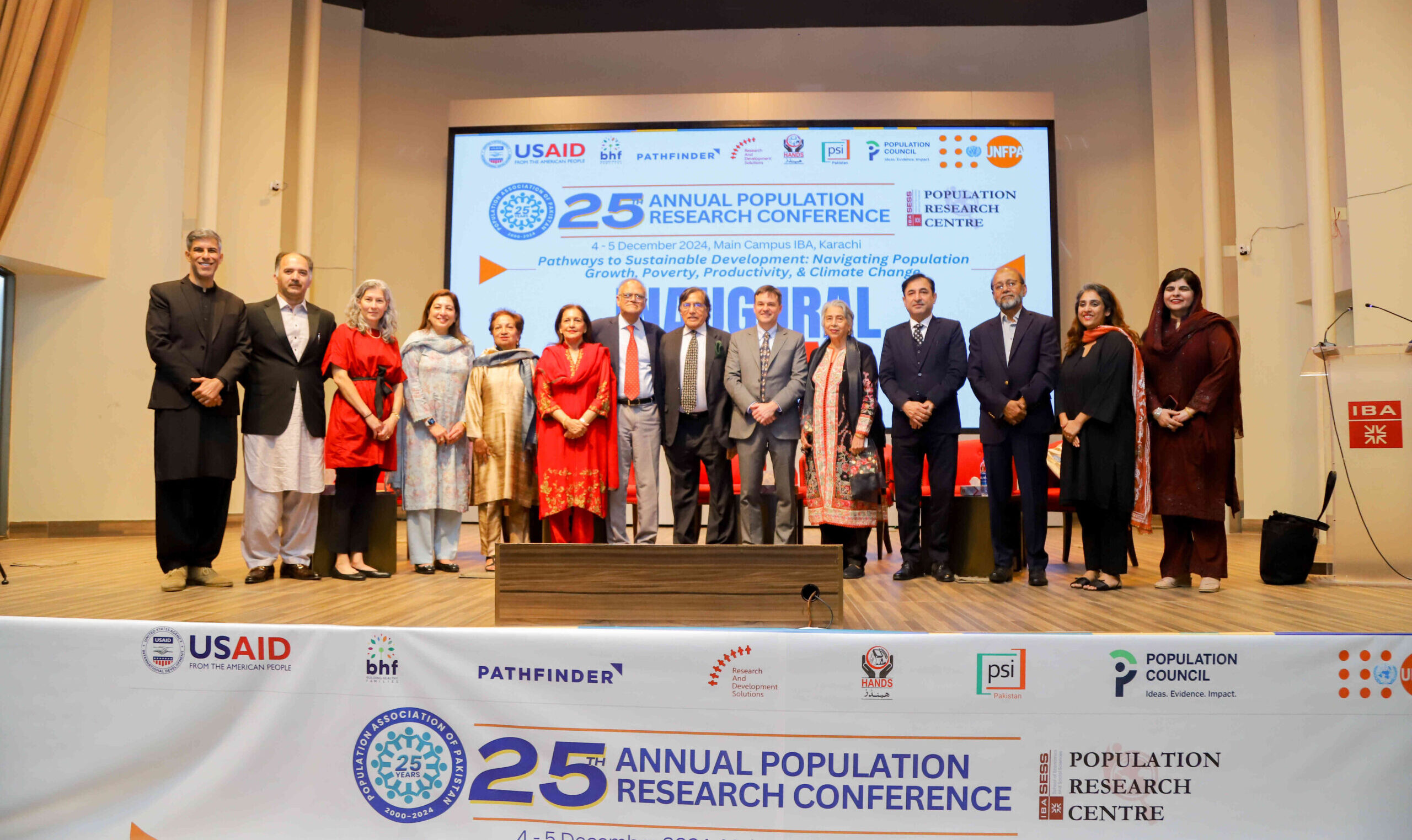KARACHI, December 06, 2024: The Institute of Business Administration (IBA) Karachi successfully hosted the 25th Annual Population Research Conference, in collaboration with the Population Association of Pakistan (PAP) and the Population Research Centre (PRC) at IBA’s School of Economics & Social Sciences. The conference was designed to explore critical issues related to the sustainable development of Pakistan, addressing the evolving demographic challenges facing the country.
Dr. S. Akbar Zaidi, Executive Director of IBA Karachi, delivered the welcome remarks during the opening session, setting the tone for an enriching discussion. The keynote address was presented by Senator (R) Javed Jabbar, Director of the Social Policy and Development Centre, Karachi. Dr. Nasra Shah, President of the Executive Council at PAP, shared reflections on the PAP’s 25-year journey, recognizing its significant contributions to population research.
The first panel, titled “Pakistan @ 2050,” was moderated by Dr. Asma Hyder, Dean of the School of Economics & Social Sciences. This session focused on Pakistan’s demographic challenges in the coming decades, including poverty, urbanization, and climate change. Experts such as Dr. Zeba Sathar, Senior Associate and Pakistan Country Director at the Population Council; Dr. Heman Das Lohano, Professor of Economics at IBA Karachi; and Dr. G.M. Arif, Former Joint Director at the Pakistan Institute of Development Economics, discussed Pakistan’s population trends, emphasizing the impact of rapid urbanization. With predictions suggesting that more than half of the country’s population will live in urban areas by 2050, the panel stressed the urgent need for policies addressing the issues posed by urban growth and climate change, particularly migration and shifting demographics.
A spotlight session, “Data for Development,” featured a discussion with the heads of regional PRCs, including Dr. Khadija Malik Bari, Director of IBA-PRC, who elaborated on the role of data in driving sustainable development initiatives. Dr. Bari presented IBA-PRC’s initiatives, such as the Young Researchers Workshop Series and the international webinar series, both aimed at fostering collaboration and knowledge-sharing to address pressing development challenges.
The second day of the conference featured technical sessions and poster presentations on topics such as migration, brain drain, gender issues, health systems, and the role of data in decision-making. The event concluded with a panel on the “Private Sector’s Role in Family Planning,” exploring how the private sector can contribute to family planning efforts and the use of data to assess its effectiveness.
About IBA Karachi:
IBA Karachi, a premier institution with a legacy of 70 years, has continuously expanded its academic landscape. It launched three unique schools: the School of Business Studies (SBS), the School of Economics & Social Sciences (SESS), and the School of Mathematics & Computer Science (SMCS), reaffirming its commitment to leadership, excellence, and impact across diverse fields.



























































































































































































































































































